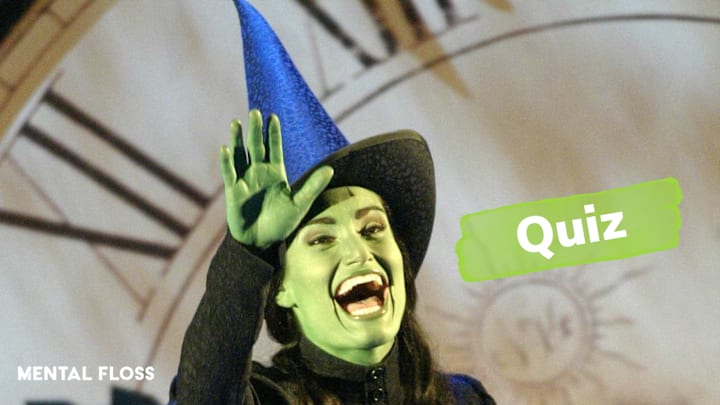With the release of Wicked: For Good on November 21, a dream has finally been fulfilled for theatre lovers who have been desperate to see the stage show come to life on the big screen for decades. Take our trivia quiz on the making of the original musical here:
How did you do? While some of these questions can be answered by anyone who loves the show, others require deep knowledge best acquired through books like Carol de Giere's biography Defying Gravity: The Creative Career of Stephen Schwartz or Schwartz’s newsletter, The Schwartz Scene.
The idea for a Wicked adaptation was first floated in 2004, with vague announcements coming every few years. But true progress didn't happen on the film adaptation until 2021, when Universal committed to the project, hiring Jon M. Chu to direct and Ariana Grande and Cynthia Erivo to star.
But amidst all the chaos of the potential film, the stage production has been going strong ever since its debut (barring the shutdown of theatre productions due to COVID-19). At present, Wicked is both the fourth longest-running and the second highest-grossing Broadway musical of all time. But what exactly goes into making such a successful show?

Wicked Changes From 2003 to the Present
In 2003, Schwartz wrote about his 1976 show The Baker's Wife, remarking that a recent revival “finally works!” He then mused that, since it “only took 26 years to get this show right,” Wicked would likely be perfected by 2029.
We’re not quite that far out yet, but there have been some notable changes made to the script since the show’s debut. In the first 20 years, there were a few minor changes made to the dialogue and lyrics. New actors would tweak a few notes to better fit their voices and interpretations, and changes made for international productions would occasionally filter their way back to the United States.
More Quizzes:
Add Mental Floss as a preferred news source!
But the real changes come in the cinematic version. For one thing, the combined runtime of both parts is just under 5 hours, while the full stage production is only 2 hours and 45 minutes. The script for both parts was written by Winnie Holzman, the musical’s book writer, and Dana Fox, a film and television writer. Meanwhile, changes to the music were written by Schwartz, though one song is co-written with Cynthia Erivo, and John Powell composed the incidental score.
The changes made when converting Act One into Part One were primarily to the dialogue, adding additional backstory for Elphaba and Nessarose’s childhoods, introducing more Animal characters, expanding Madame Morrible’s screentime, and generally increasing Glinda and Elphaba’s time in the Emerald City.
The songs remained largely the same as the stage production, although there was a new addition made to the song “One Short Day” to allow original Broadway cast members Idina Menzel and Kristin Chenoweth, as well as Fiyero understudy Michael McCorry Rose, to have featured cameos.
Spoilers for Wicked: For Good ahead.

Act Two is where the most significant changes were made. On the script’s part, Glinda, Nessarose, and the Animals are all given more scenes and more compelling arcs in Wicked: For Good, as the musical version was much more focused on Elphaba’s post-Shiz plotline. There is also a substantial change to Nessa’s arc to remove ableist stereotypes.
But the musical changes are profound, with Schwartz claiming in his commentary for the soundtrack that “at least half of this album is new.” In addition to gaining two new songs (“There’s No Place Like Home” and “The Girl in the Bubble”), Glinda gains a significant portion of the song “Wonderful,” and the beginning of “Thank Goodness” is expanded to a full song titled “Every Day More Wicked.”
It’s currently unclear whether any of these changes will transition back into the stage show, as Olivia Newton-John’s “Hopelessly Devoted to You” occasionally does in stage adaptations of Grease. If they do, then perhaps Schwartz’s prediction of a more satisfying version of Wicked in 2029 will actually come true.
